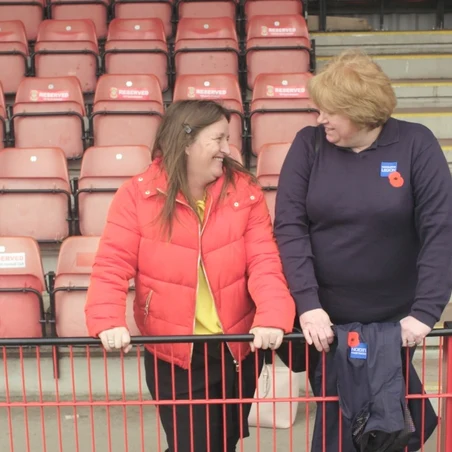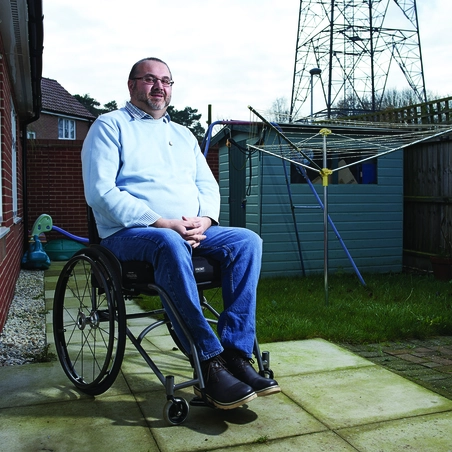Ian Ewers-Larose was a medic in the RAF, serving a tour in the Falklands and on Operation Granby in the first Gulf War. He explains how his health deteriorated after Service.
Operation Granby
Gulf War Illness
I was also trained in Special NBC Team (nuclear, biological and chemical) to deal with any medical incident involving those three weapon usage. Because of this I was told I would be on high alert so I had to be prepared.
About six to nine months after serving in the first Gulf War I became unwell and this next information is only what I have been told as I cannot remember myself.
I collapsed at home and was rushed to hospital with a suspected brain haemorrhage.
After several days in hospital and the loss of feeling in my legs, it was found that the myelin sheath (that coats your spinal column to protect your central nervous system in your spine) was destroyed.
Initially the civilian hospital thought I had Multiple Sclerosis, as this is a symptom of this, but I had no other real symptoms to suggest this, so it was all a big question mark.
This was then dismissed and I was discharged back to the RAF.
I had to try to get on with my job without being able to walk properly. I also had an issue with my vision in my left eye.
As I was constantly falling ill, I was advised to take redundancy in 1996, rather than being medically discharged.
At a medical board in London, they gave me the diagnosis of post-viral syndrome (better known today as chronic fatigue syndrome).
I now have to take a cocktail of medications to keep me alive.
No-one has ever found out what happened, and to this day I "short circuit" and this causes mini TIA's (mini strokes).
Since all this I have had two major strokes and 2 major TIA's and have occasional "vacant episodes" which are said to be linked to this problem.
Leaving the RAF
When I left the RAF I went to a resettlement course where the Royal British Legion advised I apply for a War Pension; which I did and was awarded this status.
I was given £1,500 compensation and a letter for free prescription and war pensioner status.
Because my condition had become so bad over the last few years, I had to give up work. I now receive my Service pension from the RAF.
I left the RAF in 1996. I now have to take a cocktail of medications to keep me alive – without this I do not know where I would be.
I continue to live with neuropathy pains in legs and arms, excessive tiredness - chronic fatigue, forgetfulness and occasional loss of cognitively activity, global pain and heart arrhythmia.








